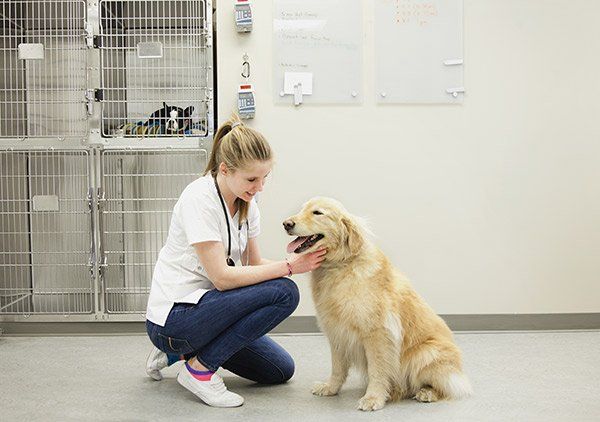
Common Non-Core Vaccines for Dogs and When They Might Be Needed
- By
- •
- 09 Oct, 2017

Vaccinations are important for protecting your dog's health and, in the case of some diseases that are transmissible to humans, your own health too! There are four core vaccines recommended for all dogs: parvovirus, distemper, adenovirus-2 and rabies. However, there are also several non-core vaccines that your vet may recommend for your dog depending on the circumstances. Here's a look at those non-core vaccines and when they might be needed.
Leptosporosis
Leptosporosis is a bacterial infection that can cause serious illness including liver failure, bloody diarrhea, renal failure and profound muscle stiffness. It is difficult to treat, and dogs must be hospitalized; some do not recover. Leptosporosis can be passed on to humans, so protecting your dog also means protecting your own family.
In years past, vets rarely recommended the leptosporosis vaccine for dogs simply because exposure to this disease was so rare. However, that is changing as leptosporosis becomes more commonplace. The bacteria are often spread by wildlife and farm animals; your dog may come into contact with leptosporosis when wading through or drinking from a contaminated pond or stream. If your dog spends time in wooded areas or if you live near farmland, your vet will likely recommend the leptosporosis vaccine.
Lyme Disease
Lyme disease is a bacterial infection, spread by ticks, which causes an array of symptoms including muscle stiffness, loss of appetite and swelling of joints. It can be difficult to treat, especially if it is not caught early on, and some dogs suffer from recurring flare-ups for years after the initial infection.
Since dogs can only contract Lyme disease after being bitten by an infected tick, keeping ticks off your dog is sufficient for protecting him against Lyme disease. In most areas, this can be achieved with tick-repellent products, and so the Lyme disease vaccine is not necessary. However, if you live in an area where ticks are very common and your dog spends a lot of time out in wooded areas, your vet may recommend the Lyme disease vaccine as an additional preventative measure.
Canine Influenza
Canine influenza is a viral infection that causes respiratory symptoms such as a dry cough, wheezing and sneezing. It is passed from dog to dog very easily since it can travel through the air in droplets and aerosols when a dog coughs or sneezes. The virus can also live on surfaces, like bowls and counters, for up to 48 hours.
Canine influenza is most often seen in kennels and boarding facilities. Once one dog becomes infected, the disease spreads rapidly among the other dogs. Your vet is likely to recommend vaccinating for canine influenza if your dog will be spending any time at a boarder or if you regularly take him in for professional grooming.
Bordetella
Bordetella is a bacterial infection that causes similar symptoms to canine influenza: coughing, sneezing and wheezing. It is passed from dog to dog through nasal secretions.
Because it is commonly transmitted in dog kennels, Bordetella is often known as kennel cough. Most dogs recover from this infection with no major difficulties, but since the condition is quite uncomfortable for dogs, your vet is likely to recommend vaccinating for Bordetella if your dog visits a groomer, spends time in the kennel or goes to a dog park where they might play with other dogs.
Every dog's needs are different. If you believe that your dog may be at risk for any of the diseases listed above, talk to your veterinarian about administering a vaccination. The vets at Hirsh Animal Hospital are always happy to discuss your concerns and devise an appropriate treatment with your dog's unique needs in mind.



